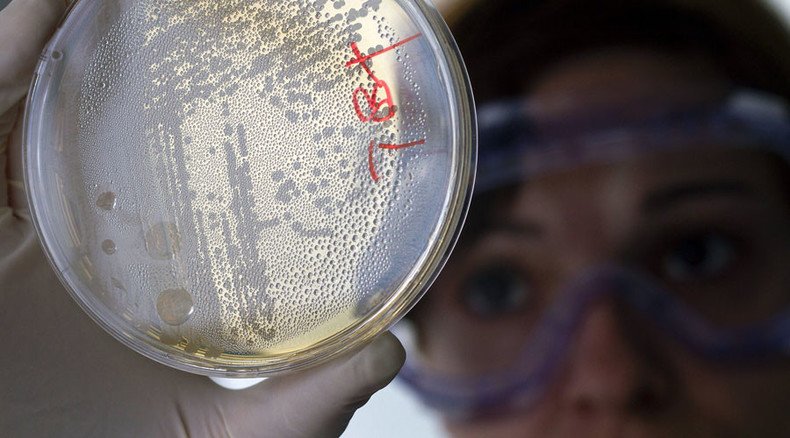Drug-resistant gonorrhea spreads in northern England

One of the most widespread sexually transmitted infections has become invincible to traditional treatments.
British sexual health doctors are reporting an outbreak of a highly drug-resistant gonorrhea strain first registered in Leeds in northern England.
The disease caused by the Neisseria gonorrhoeae bacterium is virulent in all kinds of unprotected sex.
Normally, it is cured with a combination of antibiotics azithromycin and ceftriaxone, but the new strain easily overcomes the treatment.
READ MORE: Antibiotics 'fail 15%' of patients due to superbugs and ‘reckless’ prescription
Since March, there have already been 12 cases of mutated gonorrhea registered, all in heterosexuals, in Leeds and four more in Cheshire’s Macclesfield, Greater Manchester’s Oldham and North Lincolnshire’s Scunthorpe.
“It doesn’t sound like an awful lot of people, but the implication is there’s a lot more of this strain out there and we need to stamp it out as quickly as possible,” a consultant in sexual health based in Bristol, Peter Greenhouse, told the BBC News website.
A similar case of complete resistance to ceftriaxone antibiotics was reported in 2011 in Japan, the BBC reports.
Greenhouse explained that should the new strain becomes predominant in the UK, Brits are “in big trouble” and meticulous effort would be needed to have all the infected people “traced and treated.”
More undiagnosed cases are likely to be on the way as the British Association for Sexual Health and HIV has reported that those people with the disease have had sexual partners from across the UK.
“There is the possibility that we've got a very resistant strain of gonorrhea,” the association’s president, Dr Jan Clarke, told the BBC.
“An outbreak control team meeting has been convened and STBRU are currently performing next generation sequencing on these strains to better understand the molecular epidemiology,” the association said.
Last year, nearly 35,000 cases of ‘ordinary’ gonorrhea were reported in England, a 19 percent growth on 2013 figures, making it is the second most widespread sexually transmitted bacterial infection in the UK, with the first position yielded to chlamydia.
READ MORE: ‘Slow death of the NHS’: RT asks what a Tory govt means for the health service
Primarily, the disease affects young people under 25.
The major problem with gonorrhea is that about 10 percent of men and practically 50 percent of women do not experience symptoms of the disease – until the infection takes over.
When symptoms become evident, they take the form of green or yellow purulent discharge from genitals, painful urinating and bleeding in between periods for women.
Improperly treated infection could end up in infertility or could be passed to a newborn.
A statement issued by Dr Mike Gent from Public Health England maintains that although alternative kinds of antibiotics are currently being tried to cure the new gonorrhea strain, “the resistance to first-line treatment remains a concern,” as the Leeds outbreak might signal the rise of untreatable forms of gonorrhea.
To curb the spread of the new disease, Dr Gent urged the public to practice safe sex and use condoms.












